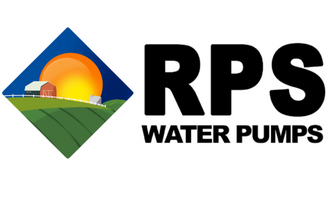

Answering Your Water Pump Questions
with RPS Engineer Mike

What to Look for When Buying a Water Pump
When you are searching for a new submersible well pump, what should you be looking for? What are signs that the water pump is made with quality materials? There are a few things that you should keep in mind while looking into getting a new well pump. Most pumps from big name companies will be quality pumps, as those companies make similar choices when it comes to build quality and materials. Here is a short description of important things to look for to make sure you buy the best AC well pump for your needs.
Submersible Well Pump Materials
The first thing to keep an eye out for is the materials used in the manufacturing of the pump. The best quality well pumps for home use are going to be made with stainless steel housings for the motor and the pump end. Some pumps are made with plastic housings, or a lower quality steel that is prone to degradation. Stainless steel ensures that your pump is durable and won’t rust or degrade after years of being down a well, which is key for maximizing the life expectancy of your water pump.
Another sign of a quality pump is if the impellers of the pump are made with a hard composite plastic called Noryl. Noryl is used in all high end well pumps for multiple reasons, mainly its durability and lightweight. Noryl is a very durable material that is known for its strength and corrosion resistance, which allows it to work well in harsh environments where metal impellers may corrode over time. While very durable, it is also a very lightweight material, which allows pumps that have Noryl impellers to be more energy efficient and easier to handle and install.
2 Wire vs. 3 Wire Well Pumps
You will also want to look and see if the pump is a 2 wire pump or a 3 wire pump. This refers to the number of wires that go down to the pump itself to provide power, and makes a difference in installing and maintaining them. A two wire pump has all of the capacitors that help start the motor built into the pump itself, while 3 wire pumps have a starter box that contains the capacitors outside of the well. A 2 wire pump is easier to install, as you don’t need to wire up a starter box. But if the pump breaks and a part needs to be replaced, it makes maintenance more difficult as you would need to pull the entire pump in order to access all of the parts. Most of the time you will need to outright replace the pump if a capacitor blows.
A 3 wire pump, while a little bit more work to install as you need to wire the pump up to the starter box, is much easier to maintain. If a capacitor blows on a 3 wire pump, you just need to replace the part in the starter box and don’t have to deal with pulling the entire pump. This isn’t to say a 3 wire pump is inherently better than a 2 wire pump, but it is easier to do maintenance on and you often won’t have to replace the entire pump if something goes wrong.
These are just a few things you will want to keep in mind when searching for a new submersible well pump. If you have any questions, feel free to give us a call and talk to one of our pump specialists at 855-560-5670.
Want to learn more about well pumps? Check out this blog on how many years a submersible well pump should last!
Take the Next Step to Water Independence
Learn More About Water Pumps
-
 If you’re considering replacing a well pump and it’s your first time, you may have questions about long it may take. We often say a full install only has to be a couple of hours, but is that actually accurate?Read now
If you’re considering replacing a well pump and it’s your first time, you may have questions about long it may take. We often say a full install only has to be a couple of hours, but is that actually accurate?Read now -

How many GPM is a good well pump?
Water needs can differ significantly depending on circumstances, and you may need a submersible well pump with a significantly higher or lower flow rate, depending on household size, irrigation needs, and sprinkler use.Read now -

Can you put in too big of a pressure tank?
When it comes to sizing a well pressure tank, there really isn’t an upper limit as to how big of a tank you can put in. There are some pros and cons to different size pressure tanks, and they can have an impact on the lifespan of your pump.Read now




